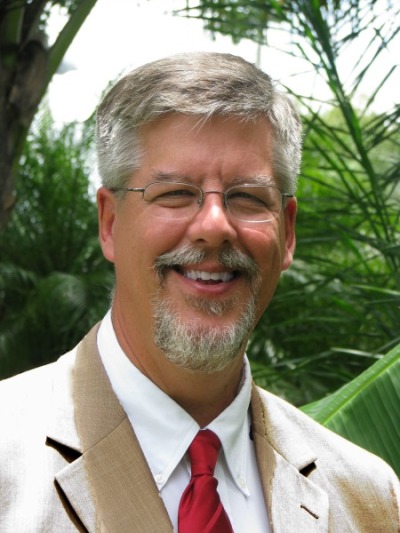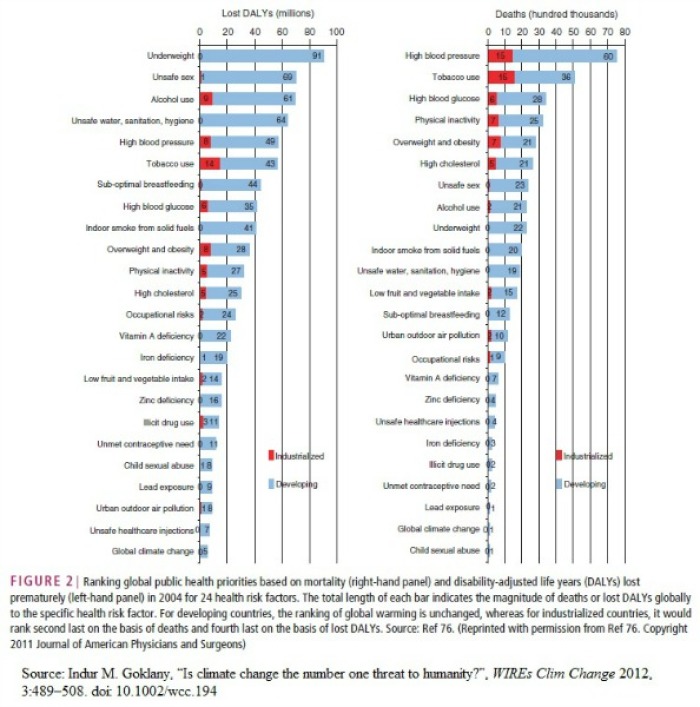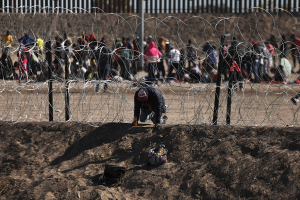Oppressing the Poor In the Name of Fighting Global Warming

"No challenge poses a greater threat to future generations than climate change."
So said President Barack Obama in his State of the Union message last week.
That he spent under 5% of the speech on the subject—about one-ninth as much as on the economy, one-fifth as much as on our need to overcome cynicism, and a little less even than on affordable college education—and tucked it away in a section about two-thirds of the way through suggests that the President doesn't really believe it himself.
Nonetheless, some evangelical creation-care advocates embrace the claim. For example, Rev. Mitchell Hescox, President of the Evangelical Environmental Network, calls climate change "the greatest moral challenge of our time."
Is it true?
Obama sought to support his claim by repeating a NASA report that 2014 was the "warmest year on record" and adding, "14 of the 15 warmest years on record have all fallen in the first 15 years of this century."
An avalanche of devastating critiques of NASA's claim came out well before the address. Here are a few inconvenient truths Obama left out:
- 2014 was, according to NASA's data, only one-one hundredth degree Celsius warmer than the next warmest year (2010), but the margin of error is ten times as much. That makes the difference meaningless.
- NASA's claim was based on surface data, which are notoriously less credible than satellite data, and according to the latter, 2014 was the third warmest year on "record," beating out the next six by less than the margin of error, which means it might have been anywhere from third to ninth warmest.
- The satellite "record" goes back only 35 years, and NASA's surface "record" 135. But the Minoan Warm Period (roughly 3,000 years ago), Roman Warm Period (roughly 2,000 years ago), and Medieval Warm Period (roughly 1,000 years ago) were warmer than the present—all before people began burning fossil fuels.
- For 14 out of the 15 warmest years on either of these records to come in this century would be significant only if it were improbable. But probability applies to random chance, like rolling dice, and the climate system isn't random. It's "a continuous process of incremental change," as Holman Jenkins put it, going on to explain that this kind of reasoning "is akin to assuming that, because you weighed 195 pounds at some point in your life, there should be an equal chance of you weighing 195 pounds at any point in your life, even when you were a baby."
- That the planet's been warmer the last 35 years than the previous 115 implies nothing about what made it that way. The fact that computer climate models (whose prognostications ground the fears of dangerous manmade global warming) exaggerated the observed warming since 1979 by 2 to 5 times and utterly failed to predict the absence of warming for the last 18 years and 3 months demonstrates that the sensitivity of global temperature to added CO2 programmed into them is wrong, and consequently the models are worthless for forecasting future temperature. Consequently, climate scientists the world over are reducing their estimates of CO2's warming effect to levels that aren't dangerous.
- Finally, 2014 was actually among the 3 percent coldest years in the last 10,000.
Still, might "climate change"—by which the President really meant not the simple fact that climate changes, as it always does, but manmade global warming great enough to cause catastrophe and justify spending trillions of dollars to mitigate—might "climate change" really be "a greater threat to future generations" than any other?
Not by a long shot.
As the Copenhagen Consensus has found through repeated studies, many times more people are and will remain at risk of disease and death because their poverty deprives them of safe and sufficient food, water, sanitation, and pest control than even the most alarming scenarios of the U.N. Intergovernmental Panel on Climate Change (IPCC) forecast will be threatened by global warming.
Ironically, spending billions or trillions of dollars trying to reduce global warming actually puts more people at risk, by prolonging or inducing poverty, than doing nothing about it—even according to the IPCC, whose Working Group 3 scenarios show more people at risk from such problems in cooler futures and fewer in warmer futures.
In developing nations, unsafe water and inadequate sanitation and hygiene put more than 12 times more people in developing countries at risk than climate change. In fact, out of 24 risks to human life ranked by U.S. Interior Department analyst Indur Goklany, climate change ranked last.

Why? Because wealth enables people to thrive in any climate, from equator to poles, coastlines to Himalayas, deserts to rainforests.
But the prescriptions for fighting "climate change"—mainly, turning from abundant, affordable, reliable fossil fuels to diffuse, expensive, unreliable wind, solar, and other alternative fuels—all mean slowing economic growth in the world's poorest countries and reversing it in wealthier countries, i.e., making or keeping people poor.
To put it bluntly: if President Obama achieves his aim of a global agreement to fight global warming, he will have condemned about two billion people to added generations of abject poverty marked by the use of wood and dried dung as primary heating and cooking fuels, the smoke from which kills some 4 million people a year—mostly women and children—and afflicts hundreds of millions more with respiratory diseases that weaken them and reduce their ability to produce and climb out of poverty.
This is what makes EEN's Hescox's calling climate change "the greatest moral challenge of our time" so ironic.
Hescox proclaims that he's "pro-life," but he stretches the meaning of the term far beyond its historic denotation of opposition to abortion (which—give him credit—he does oppose). For him it includes support for spending billions to reduce highly speculative and (unlike abortion) unintended environmental risks like mercury emissions and climate change.
Set aside for the moment that by so doing he obscures the meaning of "pro-life" and undermines the pro-life movement.
Ironically, doing what Hescox wants us to do to fight global warming would cause more deaths, not fewer, and therefore contradicts even his own broad definition of "pro-life."
The God of the Bible repeatedly demands that governing authorities protect the poor from oppression and calamity. That message comes through loud and clear at the beginning of Solomon's prayer when he came to the throne of Israel:
Give the king your justice, O God, and your righteousness to the royal son! May he judge your people with righteousness, and your poor with justice! Let the mountains bear prosperity for the people, and the hills, in righteousness! May he defend the cause of the poor of the people, give deliverance to the children of the needy, and crush the oppressor! [Psalm 72:1–4]
Through the Prophet Amos God said,
For three transgressions of Israel, and for four, I will not revoke the punishment, because they sell the righteous for silver, and the needy for a pair of sandals—those who trample the head of the poor into the dust of the earth and turn aside the way of the afflicted, with devastating impacts on the poor …." [Amos 2:6–7]
Spending billions or trillions of dollars fighting global warming will have "devastating impacts on the poor." It is an oppressive, rich man's game.




























